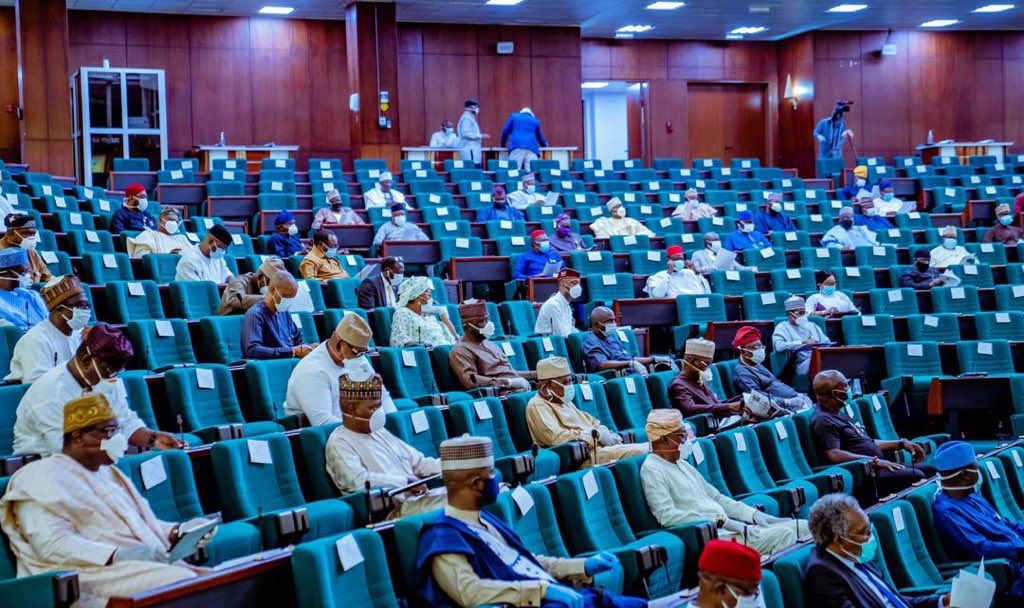The House of Representatives has said it has passed 98 resolutions on security alone in the last two years. It has also considered 853 bills and 730 motions within the period.
This was made known in a mid-term report issued on Thursday and titled ‘The Journey of the 9th House of Representatives at Two: An Up-To-Date Report on the Activities of the House by the Spokesperson.’
The 9th National Assembly – the Senate and the House – was inaugurated on June 11, 2019.
Chairman of the House Committee on Media and Public Affairs, Mr Benjamin Kalu, in the report, noted that the parliament immediately set to work after its inauguration to return the polity to “a system of checks and balances that thrived in an environment of mutual respect and harmony of government.”
He added that the lawmakers addressed critical issues in healthcare delivery, education, economy, security; agriculture and food security; sustainable power; environment and climate change; human capital and social development; governance, House reforms, and national budget reform “using all the legislative tools of intervention at our disposal.”
On insecurity, the report said, “Given the current security challenges faced by our nation, insecurity remains a key metric to analysing our performance as a legislative assembly, and one which we take with all seriousness. Whereas banditry, herdsmen crises, kidnapping, and killings have spread through all geopolitical zones in Nigeria in the last two years, we have continued to support the executive and security agencies in the fight against insecurity. We have also held them accountable to the Nigerian people where necessary, ensuring that they are constantly challenged to the highest standards of delivery.
“From 2019 till date, a total of 98 resolutions have been passed by the House on insecurity in Nigeria. Beyond this, the leadership of the House as well as various standing and special committees have undertaken on-the-spot assessments of crises areas around the country including the hotspots of Borno, Katsina and Zamfara.
“In a culmination of concern about killings and other criminal activities in the country in 2020, the House invited the President to address members on the security situation in Nigeria. While the President’s willingness to address the members was thwarted at the last minute, the concerns of the House prevailed on the executive to change the service chiefs as an added strategy in the fight against insecurity.
“The House has also engaged the National Security Adviser (Maj.-Gen. Babagana Monguno, retd.); the Service Chiefs, paramilitary chiefs, the Controller-General of the Nigeria Customs Service (Col. Hameed Ali, retd.); and the Managing Director of Nigeria Communications Satellite (NIGCOMSAT) in sessions to address insecurity.”
The House also recalled how it engaged stakeholders “in a deep dive into Nigeria’s security situation” at its recent Special Summit on National Security, while the interaction produced strong recommendations that were forwarded to the President, Major General Muhammadu Buhari (retd.), for implementation.
The House further recalled that beyond motions it had also taken concrete steps to legislate on security issues by introducing nine security bills at the plenary on June 9, 2021.
On bills, the report said, “A comparative analysis of the 9th House and previous assemblies reveals that this House has performed better in bill consideration and passage. As of June 10, 2021, the House had considered 853 bills, out of which 41 were passed, 66 were awaiting action by the Committee of the Whole, and 105 had passed second reading.”
On Constitution review, the House said the process is ongoing with hearings across the six geopolitical zones in the country.
The House also noted that it had delivered in its promise to reform the appropriation and budgeting process leading to the return of the national budget to a January-December budget cycle.
The report further read, “So far, the House has considered a total of 730 motions: 484 were taken in the first session and 246 considered in the second session. Several of the motions considered by the House were products of diligently conducted needs analysis to reflect the will of the people, exercise its oversight responsibilities as stipulated in Sections 88 and 89 of the 1999 Constitution, and address front-burner issues in the nation.
Ninety-eight of the resolutions have addressed various challenges in insecurity while others have addressed other socio-economic issues and performance issues by the executive.
